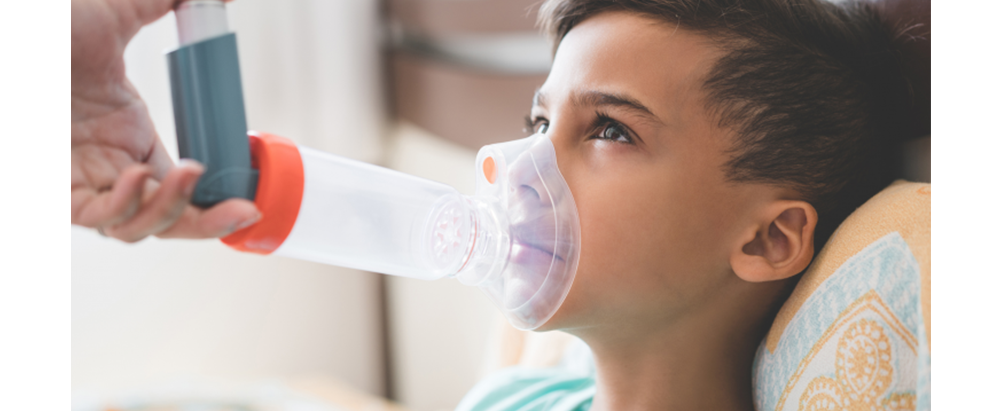Breaking Down Childhood Asthma With Dr. Ita Tripathy

Here at Family Allergy and Asthma, we see many young patients come through our door who exhibit the symptoms of asthma.
For children, asthma can be an interruption to their daily lives. It’s our mission at FAA to alleviate childhood asthma with our treatments.
Dr. Ita Tripathy, a board-certified allergist in Rolla, MO, explains more about this respiratory condition. If your child has asthma, or is exhibiting symptoms and in need of a diagnosis, learn more below.
What Is Childhood Asthma?
This is a disease that affects the airways, which are the passages that bring air to the lungs. Specifically, inflammation of the airways cause obstruction and excess mucus. As a result, wheezing, breathlessness, coughing, and chest tightness occur.
Types of Asthma
“Different types of asthma are classified by the mechanisms that cause airway inflammation and by severity of the disease based on lung function and symptoms,” says Dr. Tripathy. This includes:
Exercise-induced asthma is characterized by asthmatic symptoms occurring within 20 minutes of physical activity, but no symptoms when at rest.
Airborne allergens like mold and pollen trigger allergic asthma.
Non-allergic asthma comes from more serious triggers, such as smoke and viruses.
Causes of Childhood Asthma
Genetics often play a role in a child developing asthma. If one of the parents is asthmatic, the child is 2.6 times more likely to have asthma. With both parents, the chances literally double.
The environment is also a key part of the cause of asthma. Exposure to smoking, whether during the pregnancy or after the birth, increases the risk of asthma. As can viral infections such as RSV and Rhinovirus during infancy.
“Children with allergic diseases such as eczema, food allergies and airborne allergies are at increased risk of developing asthma,” Dr. Tripathy says, asthma can be a part of the allergic march in children.
Research has found that males and black children have a higher prevalence of asthma. Also, children from lower-income households and urban areas also have a higher prevalence impacted by access of care and pollution.
Signs Your Child Is Experiencing Asthma
“Common symptoms include coughing and wheezing,” says Dr. Tripathy.
Coughing, especially persistent coughs that get exacerbated by the cold, is worse at night time, or that occurs seasonally with exposure to certain allergens.
Even if your children don’t complain of shortness of breath, observing them while exercising, you may notice they become easily fatigued. This could be a sign of asthma.
Diagnosing and Treating Childhood Asthma
Learning your child’s symptoms is our first step in diagnosing asthma. When visiting our local office, after reviewing a history of their symptoms, we conduct a physical exam. However, according to Dr. Tripathy, this exam may be normal during asymptomatic periods in an asthmatic child. During acute and severe attacks, our doctor may hear wheezing or see an increased breathing rate.
Spirometry is used for children 5 and older. This tests how much air children can breathe in and out of lungs, as well as how fast. The results can help us place where your child is within the population, as far as lung function goes.
Family Allergy and Asthma Treats Childhood Asthma
Is your child showing signs of asthma? If you are in need of a diagnosis, our expert team at Family Allergy and Asthma can help your family get the right treatment.
Treatment depends on asthma severity and involves rescue (immediate relief) inhalers such as albuterol, and controller medications such as inhaled steroids or oral medications. Once diagnosed we can help identify triggers of their asthma and determine the best precautions and treatments to help your child live life to the fullest.
Request an appointment with us today to get your child tested and/or treated for childhood asthma!
Family Allergy and Asthma Blog
Want to learn more about allergies, asthma, and other relevant health topics? Check out our blog here.
Check out a few of our top educational pieces:
- 25 Myths About Allergies and Asthma
- Here’s the Most Common Summer Allergies and How to Prevent Them
- Going for the Gold: Athletes and Asthma
- Preparing Your Child with Allergies for College
- FAQ: Allergy Shots

